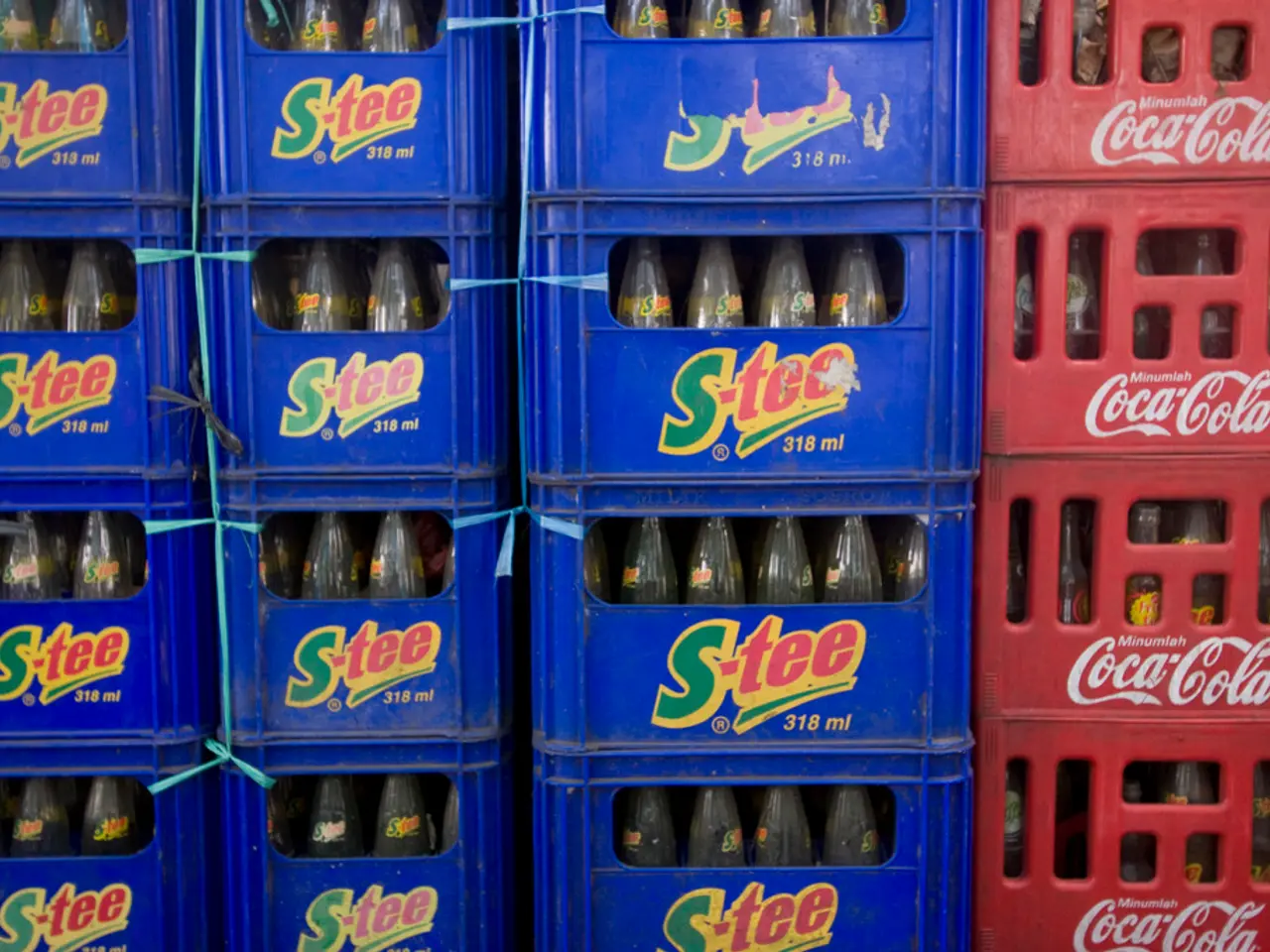Customer hits record-breaking purchase of more than 1000 bottles of liquid merchandise at Lidl
In a remarkable display of environmental consciousness, a customer at a Lidl store in Fehmarn, Germany, returned over 1,100 bottles and cans, setting a new record for the largest single return under the German bottle deposit system.
The customer's action, which took two and a half hours and required two trips to the Lidl branch, sparked discussions about the practicalities of the bottle return system and raised questions about space requirements, storage, and hygiene. However, it is worth noting that the German legal framework for deposit returns aims to encourage recycling by allowing consumers to return large volumes of empty containers without unreasonable restrictions.
Under the German container deposit system, commonly known as Pfand, Lidl, along with other large discounters like Aldi and Kaufland, do not impose any explicit quantity restrictions for returns. The main limits are that the containers must have a valid deposit marking and must be ones that Lidl sells. Containers must also be returned within a reasonable timeframe, although the deposit remains valid indefinitely.
Lidl operates reverse vending machines for automated returns, which scan the containers and issue a refund receipt redeemable in store. The customer's deposit receipt from this record-breaking return was for 282.25 euros.
The bottle return system in Germany, often mocked or copied in other countries, is a part of daily life. It is practical, environmentally friendly, and has been instrumental in increasing recycling rates. In fact, from 2025, PET bottles will contain at least 25 percent recycled material.
For those planning to return large quantities of empty packaging, it is recommended to contact the branch in advance or be flexible in time to ensure a smooth process. Congestion at the machine can significantly slow down the process.
The large number of bottles returned by the customer at Lidl sets a new record and serves as an inspiration for others to embrace the bottle return system and contribute to recycling efforts in Germany.
[1] German Packaging Act (Verpackungsgesetz) [2] German Federal Environment Agency (Umweltbundesamt) [3] European Commission - Waste from Drinks Containers (EU Waste Framework Directive)
- In light of the customer's record-breaking bottle return at a Lidl store, an environmental lifestyle that includes utilizing sustainable-living practices, such as adherence to home-and-garden initiatives like the bottle return system, might inspire further increases in Germany's recycling rates.
- The bottle return system, a key component of the environmental lifestyle in Germany, not only aligns with the German Packaging Act (Verpackungsgesetz) and the European Commission's Waste from Drinks Containers directive, but also exhibits a level of sustainability that could influence the home-and-garden and lifestyle choices of other European nations.






